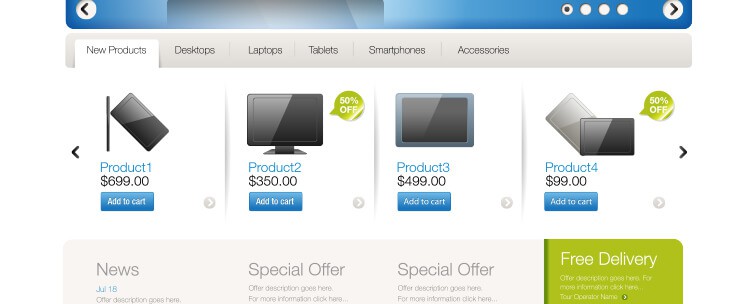Thinking of taking your bricks and mortar store to the next level? Think you might benefit from an online store?
There are many reasons why this might well be the best thing you end up ever doing for your business.
Perhaps the most compelling of these is that an online store gives your customers the ability to buy from you, regardless of time and distance. Have a think about that for a second: a sale that you normally wouldn’t have been able to make because the customer couldn’t visit your store during business hours or because they lived halfway across the world suddenly becomes not only possible, but likely.
This, in part, explains the massive e-commerce explosion which has occurred over the past ten or so years, and why it only seems to be expanding further. This is really quite exciting: having an online store connects you to a customer base you otherwise never would have access to.
But is an online store right for your business? What are the advantages of having an online store, as opposed to a regular website? Here, we look at four.
1. CMS is easier to use

A CMS (“Content Management System”) is a web-based program that allows you to create, edit and manage the content on your website or online store. It’s a way of cataloguing content in a database so that it’s easy for you to update and maintain it yourself. WordPress, Drupal and OpenCart are examples of popular CMS options, though there are different ones for online stores and websites.
An easy to use CMS allows for straight-forward, stress-free self-management and maintenance, making it simple for you to modify and update your site after it has been built – to edit, add and deleted images, for example, as well as many other functions.
Now, let’s back-track for a second. One of the options available for a business that wants to incorporate a selling feature onto their website without actually having to get a full-blown online store designed is to add on a shopping cart to the site (WooCommerce). This provides an easy option for selling products or vouchers. This can be a great solution where selling products isn’t the sole focus of the site.
However, the downside here is that as a general rule, CMSs used for online stores tend to be easier to use than those associated with websites that utilise shopping carts as an add-on feature. If you lack technical expertise yourself, this could be an important point to consider.
2. Improved product presentation

Having an online store will allow you to maximise your product presentation in a way that provides a vast amount of clear, fine detail. There’s also a large range of options for cross-selling, displaying examples for product variation (items available in different colours, for instance), and displaying alternate views and angles for each item.
If your business revolves around selling products, this product-centric approach is obviously vital – your customer needs to be able to access as much information and detail about potential purchases as possible.
This has a number of different advantages. For one, it lets you showcase your products and all the benefits they have to offer. This is a no-brainer. All businesses want to present their products in the most attractive, professional light.
This is also about developing your business’s credibility. Letting customers explore your product in detail through online store features like magic zoom (which lets them hone in on a small details) gives them a greater sense of control over prospective purchases and over their shopping experience. This also encourages them to invest more trust in your brand.
3. E-commerce is perfectly suited to selling

If the main purpose of your business is to sell products, an e-commerce platform is ultimately better suited to your needs because it’s intrinsically suited to selling. That is, the entire point of e-commerce’s existence is selling.
However, if the main purpose of your online presence is to advertise a service – if selling products is a secondary purpose – a website with a shopping cart attached may be a better option for you.
4. Higher levels of functionality

Because e-commerce is inherently suited to selling products, it also offers up more advanced levels of functionality associated with selling.
An online store therefore provides a more dynamic way of displaying, presenting and promoting your product range, as well as ways in which your customer can interact with it.
For example, is there a particular product that you’re especially proud of? Maybe you have new products you want to show off. Do you perhaps want to showcase a particular style or sub-category of product that you’re looking to make more popular?
Having an online store will let you display “featured products”, “product categories” or “specials” to catch the attention of your visitor. This can increase their awareness of whatever product or category you’re looking to promote.














Get posting!
If you need some help from a social media specialist, talk to one of our experts today – if you are a current client, call 1300 883 639 – call (213) 634-1668 if you are a new client.







